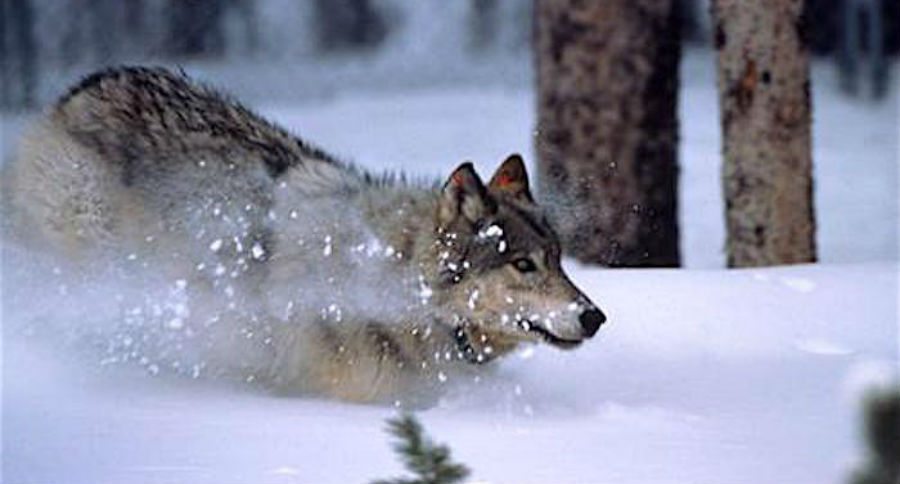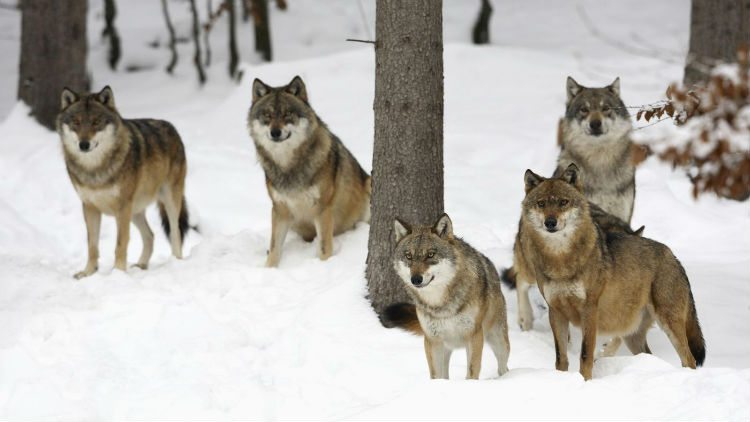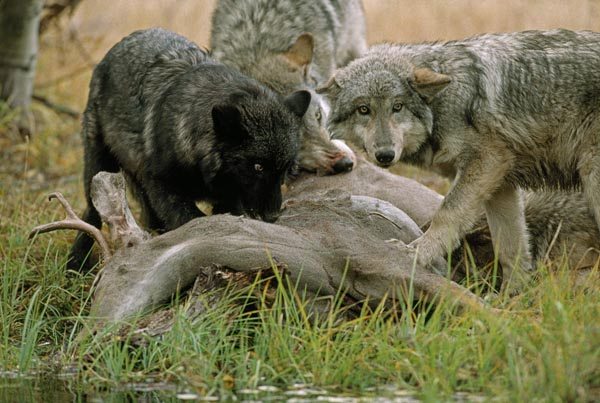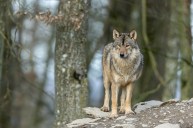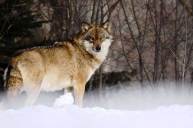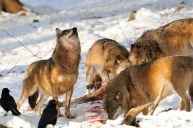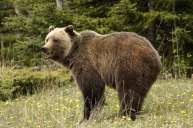A group of bipartisan lawmakers has come together to try to delist wolves from endangered species status. Will the third time be the charm?
Representatives from a number of states have joined forces in a bipartisan effort to put wolf management back into their own hands. They have introduced a bill to congress to delist wolves from endangered species status for the third year in a row, since a federal judge put wolves back on the endangered list in 2014.
Reps. Collin Peterson (D-MN), Sean Duffy (R-WI) and Liz Cheney (R-WY) have co-authored the bill and represent the states of Wyoming, Minnesota, Wisconsin and Michigan, where the issue of wolves is hotly contested, even as their populations are rising. As you might imagine, this bill has garnered fierce support and equally fierce opposition.
Supporters say that states should be able to effectively manage their wolf populations, just as they do with other wildlife, while detractors such as Rachel Tilseth, founder of the website Wolves of Douglas County Wisconsin, suggest that the states have a not so hidden agenda concerning wolves.
"Because apparently management of wolves means a wolf hunt," she said. "For them, that's the only way that they feel they can manage them is through the hunting and trapping and barbaric use of dogs."
This is a gross oversimplification of both the issue and the record of the states involved, but also is the emotional stance of a staunch anti-hunter.
Rep. Duffy countered Tilseth's argument by declaring that farmers and citizens deserve to have their livestock and pets protected from a wolf predation. "This is not being done so there can be a wolf hunt," Duffy said. "This delisting is so farmers can protect their livestock."
Jack Johnson, speaking for the North Central Wisconsin Cattlemen's Association, agrees with Duffy. "The state could start managing them and get a little control over the numbers," Johnson said, "because right now they're expanding way more than we've got room for them."
Dave MacFarland, large carnivore specialist with the Wisconsin DNR, indicated that Wisconsin spent $200,505 to people who lost livestock or pets to wolves in 2015. 2016 numbers have not been calculated as of yet.
"Given the number of dogs that were killed, the significant increase in the compensation payments related to hunting dogs, that is likely to drive an increase in the total amount of compensation," MacFarland said. "But, we don't know quite yet where that will fall."
Rep. Cheney echoes Duffy's desire to return wolf management to the state of Wyoming. "Wyoming should be able to manage the gray wolf without outside interference," she said. "This bill will stop the 'management by litigation' culture that has done so much damage to our state."
Wolf vs. livestock conflicts were also at record levels in Wyoming in 2016. If the bill passes, Cheney indicated that,
"Wyoming will once again be able to manage the gray wolf population in a way that serves the best interests of the citizens of our state."
Wolf populations have far outgrown initial population goal quotas in the states, and are the source of much debate not only concerning livestock and pets, but also in relation to declining ungulate populations of deer and elk. Hunters would indeed like to see lower wolf numbers, as they blame lower deer populations at least partly on wolf predation.
Wolves can be controlled in a number of ways in addition to instituting hunting seasons, but hunting and trapping are worthy and highly effective tools for managing the wolf population.
"There needs to be a wolf season. It's like any other wildlife species - it needs to be managed. It's not being done currently. We have a wolf sanctuary here in the Great Lakes states."
Cheney also indicated that "This bill instructs the (U.S.) Fish and Wildlife Service to once again delist and prohibits judicial review of that determination," effectively preventing the delisting from being subject to judicial review and lawsuits.
Of course, animal rights activists are strongly opposed to the bill. Detractors cite science as their primary reason for opposition, but the science appears to be malleable, depending on where you stand on the issue.
Defenders of Wildlife CEO and President Jamie Rappaport Clark declared that "An attempt to delist wolves through congressional legislation is not a scientific or thoughtful approach. It could open the floodgates to endless proposals to delist endangered species based on politics, not on science, undermining the integrity of the Endangered Species Act and our ability to protect and recover our nation's imperiled wildlife."
Duffy countered with this statement: "The Endangered Species Act has allowed courts to misuse judicial oversight to stop science-based wildlife management from moving forward to delist the gray wolf."
However, Rappaport's declaration that American wildlife is "imperiled" is a grandiose talking point. While there certainly are some species that are suffering, throughout the country a lot of wildlife are at high, sustainable levels thanks largely to the North American Model of Wildlife Conservation, a program that has been funded primarily by hunters and anglers.
The North American Model has been instrumental to the hugely successful rebound of many iconic species - both game and nongame - in North America over the past 100+ years.
Far from being imperiled, much wildlife is flourishing because of this program and because of the efforts of hunters and anglers.
Wolves should be subject to the same quality of wildlife management that other creatures have benefited from.
Duffy expressed his confidence that the bill would pass this year:
"If this was an issue or an idea that was driven based on party lines, I would be less optimistic," he said. "But, this is an issue that's bipartisan, where you have Republicans and Democrats standing together. This is more of a regional issue that is bringing concern."
One thing is certain, the comeback of the wolf is sure to be hotly contested on both sides of the issue for quite a long time.
But hopefully, if this bill does pass, farmers and the rural people of the Midwest will have some reassurances that the states have the ability to work with them and offer some reasonable alternatives to unmanaged wolf population increases.
Like what you see here? You can read more great articles by David Smith at his facebook page, Stumpjack Outdoors.
https://rumble.com/embed/u7gve.v3trbl/
NEXT: Wolves Kill Bears in Den, Hunters Make Grisly Discovery
